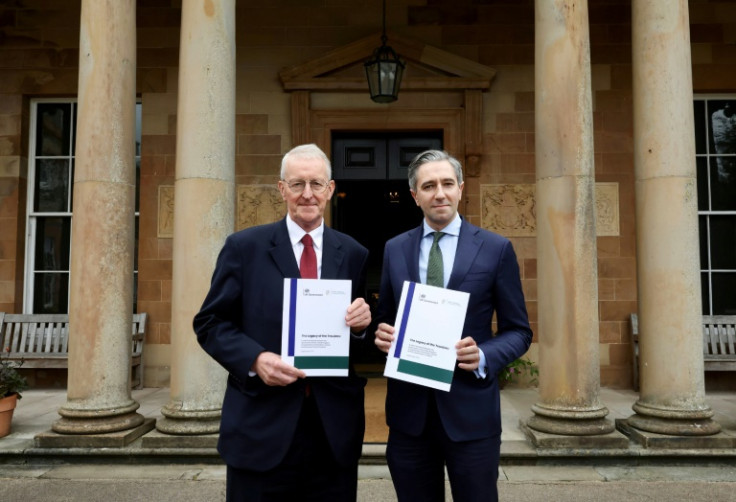UK, Ireland Announce New 'Troubles' Legacy Deal

The UK government announced Friday it would replace controversial legislation designed to draw a line under issues stemming from three decades of violence in Northern Ireland, paving the way for investigations into killings to restart.
The Northern Ireland Troubles (Legacy and Reconciliation) Act 2023 came into force last year under the UK's previous Conservative government, halting any inquests, civil cases and criminal prosecutions linked to the "Troubles".
The act, which Dublin sued London over, was aimed at promoting reconciliation, almost 30 years after the violence that claimed more than 3,600 lives ended with the Good Friday Agreement in 1998.
But it was fiercely criticised by victims and bereaved families who said it denied them justice because it offered conditional immunity to some suspects, including British soldiers and paramilitaries, if they cooperated with enquiries.
"The UK government will repeal and replace the Legacy Act, including ending the undeliverable promise of immunity for terrorists and put in place six new protections and rights for veterans," London said in a statement.
The new legislation will allow "the small number of inquests that were stopped in their tracks by the Legacy Act to resume", the government added.
The agreement follows a year of talks on resolving differences over Troubles legacy issues, which frayed Anglo-Irish relations in particular under the Tories' rule.
Britain's Northern Ireland secretary Hilary Benn said the new framework offers an opportunity to deal with the "unfinished business" of the Good Friday Agreement.
Irish deputy premier Simon Harris said the deal laid the ground for a "profound transformation" in how the legacy of the Troubles is handled.
The plan includes the renaming and reforming of a controversial body -- the Independent Commission for Reconciliation and Information Recovery (ICRIR) set up under the 2023 Legacy Act which came into effect in May last year.
The scores of civil cases and inquests that were halted included many that allegedly involved British security forces as well as paramilitaries, although this provision was later struck down after legal action from victims' groups.
With many cases dragging on for years, the ruling Conservative government said the Legacy Act was aimed at "drawing a line under the past" and promoting reconciliation.
First proposed in May 2022, it led to the setting up of the ICRIR to probe all outstanding Troubles cases.
But the ICRIR was seen by Troubles victims' groups as lacking independence, impartiality and credibility because key appointments were made by London.
It was also seen as problematic by Northern Ireland's political parties and the Council of Europe, and prompted Dublin to sue London at the European Court of Human Rights.
In 2024, the Belfast High Court ruled that the law contravened the European Convention on Human Rights.
In its ruling, which was appealed by the Conservative administration, the court said there is no evidence the immunity provision will contribute to reconciliation in Northern Ireland.
The new body will include a new independent oversight board and robust conflict of interest rules, and will be tasked with investigating cases and taking criminal prosecutions where the evidence supports them.
There will be a separate fact-finding body which can provide reports to families.
There are specific measures designed for veterans, such as the ability for them to participate or give evidence remotely from Great Britain (England, Scotland and Wales), without having to travel back to Northern Ireland.
Before winning power in July 2024, Labour committed to repealing the law and designing a replacement framework that complies with human rights obligations.
Harris said Dublin has also committed to reviewing its interstate legal action against the UK taken in 2024 to the European Court of Human Rights once the new plan is translated into law.
© Copyright AFP {{Year}}. All rights reserved.





















